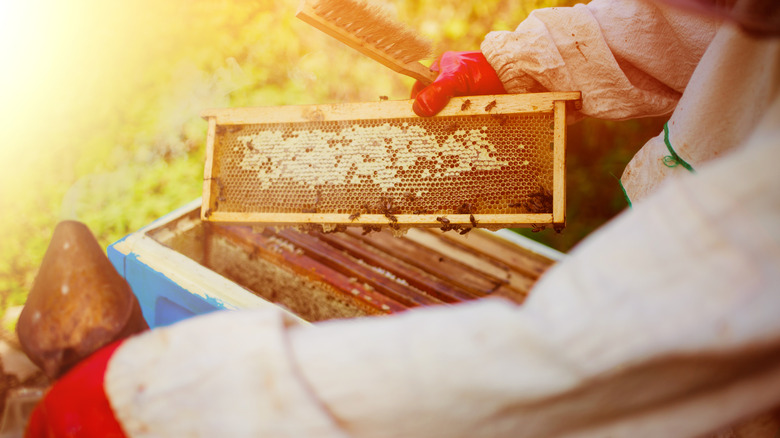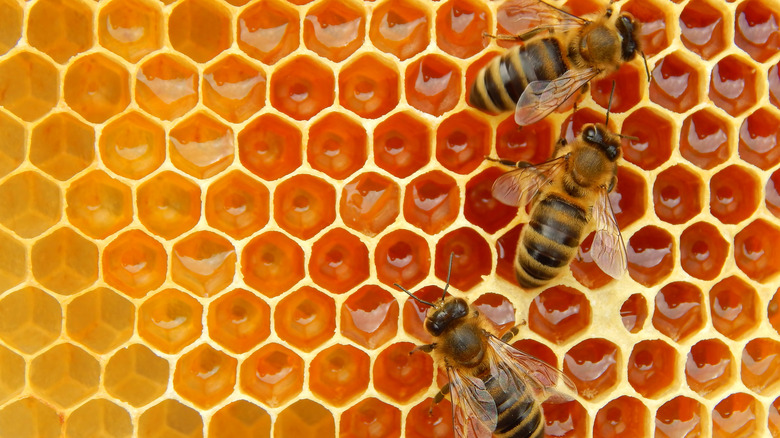Here's What Adding Bee Pollen To Your Latte Can Do For Your Health
Yet another wellness trend that has many scratching their heads at first glance, bee pollen actually has a plethora of health benefits. If you've seen influencers topping their matcha lattes with yellow granules, you've likely seen this first hand.
Bee pollen is technically beehive food, Prevention explains. Essentially, as bees move from flower to flower collecting pollen, they add their own digestive enzymes to the mixture to create food for their hives. Obviously filled with nutrients from the Earth and the bees themselves, bee pollen is known as an anti-inflammatory substance that benefits various ailments and acts as a fortifying supplement. Although research around bee pollen is still in its infancy, the trend has taken off as wellness enthusiasts try it out for themselves.
Of course, the chief benefit of bee pollen comes from its nutrient count. The outlet notes that the substance comes loaded with enzymes, vitamins, minerals and amino acids. Healthline adds that carbs, proteins, fatty acids, lipids and antioxidants grace that list as well. However, the chemical makeup changes with the seasons as well as the locations it's collected. For example, the outlet explains that pollen collected in the summer looks much different on a molecular level than pollen collected in the spring.
Bee pollen is a powerful anti-inflammatory agent
If you've read a wellness article in the past ten years, you likely know about the dangers of chronic inflammation that range from an increased risk of cancer to a higher incidence of anxiety. As an anti-inflammatory substance, bee pollen helps fight free radicals and hormones that spur tumor growth, Healthline reports. These properties also may help protect the liver, healing it from free radical damage, according to Prevention.
In addition to anti-cancer and cholesterol-lowering abilities, bee pollen also relieves allergy symptoms. While the research is still sparse, many take the supplement or add it to their morning routines as a way to combat sneezing and dryness that can ensue due to allergens. Studies show that bee pollen helped limit the activation of mast cells — a.k.a. the cells that trigger allergic reactions, Healthline notes.
Of course, anything that has a lot of nutrients and anti-inflammatory properties enhances immunity and preserves healthy cells, so it's not a bad idea to add it to your wellness cabinet. Just make sure to check that the brand you've chosen sustainably harvested the product without damaging the ecological system of bees. Furthermore, make sure it doesn't interfere with any medications before you try it for the first time.

